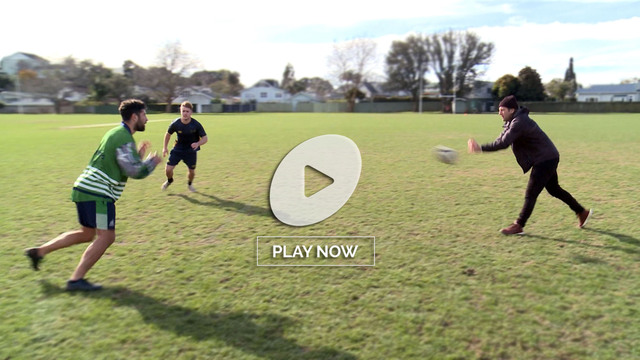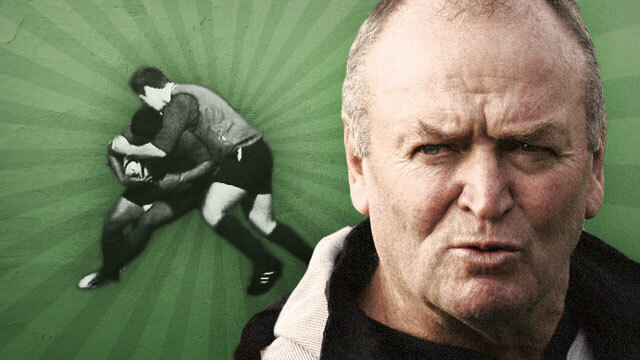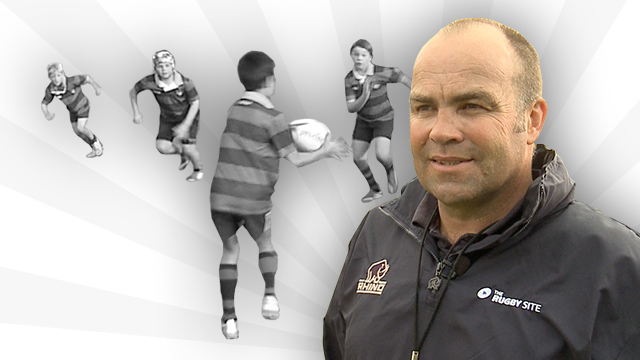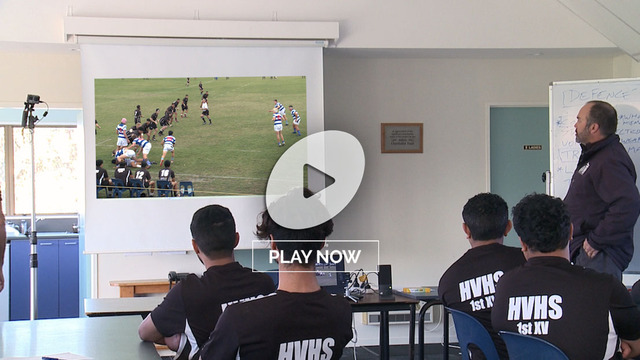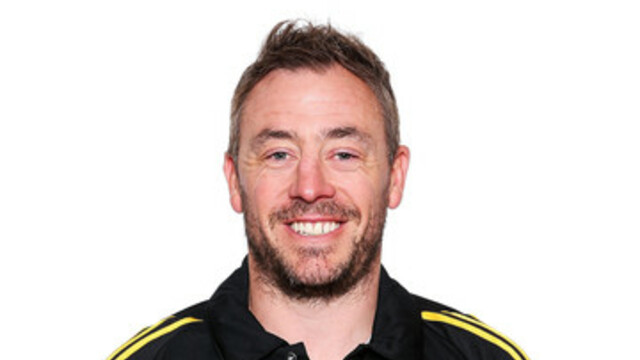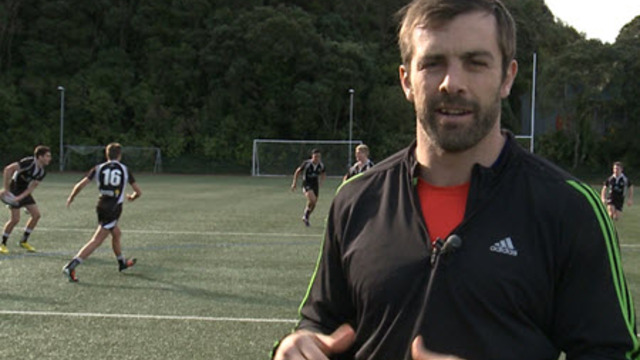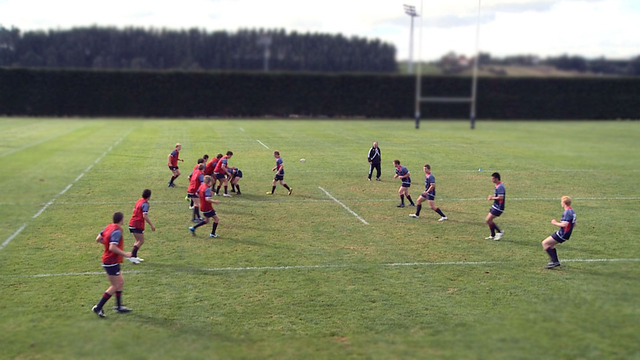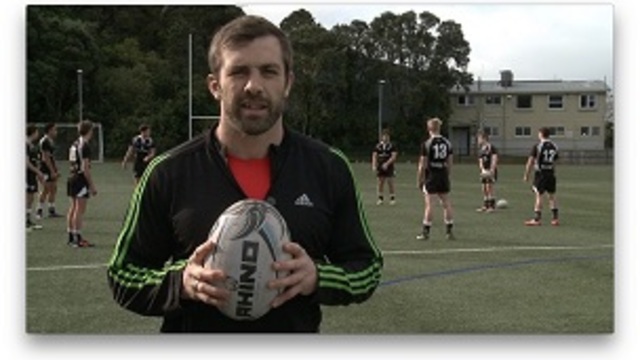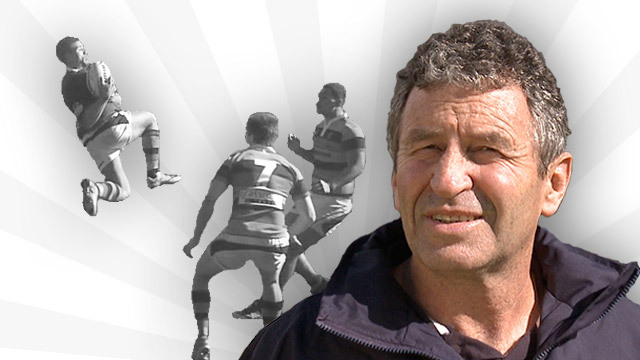Farrell spearheads the case for the defence
As dazzling the exploits of Ireland wing Jacob Stockdale during his side’s historic 16-9 victory over New Zealand on a memorable night in Dublin, perhaps the real hero was defence coach Andy Farrell.
Shackling the free-scoring All Blacks is a task beyond most with the world champions having scored four or more tries in all but one of their 12 Test outings leading up to their latest visit to the Aviva Stadium.
But Ireland did just that with a remarkable lung-busting effort devised by Farrell whose star continues to rise as quickly as that of his charges and who has long been a thorn in the All Blacks’ side.
Steve Hansen’s side have been kept try-less just twice in the last four years with the British & Irish Lions also keeping them out during their victory in Wellington last year when Farrell was once again the architect.
Farrell’s approach ‘is not rocket science’, as noted by head coach Joe Schmidt in the wake of his side’s triumph.
A high press that limits time and space, puts decision making and skill execution under a microscope and forces mistakes is something all coaches target – no matter what level they work at.
Unfortunately we are not all as blessed as Farrell who within the Ireland squad has a group of players at his disposal who are both physically and mentally able to put such a plan into action.
For such an approach to pay off it still requires total commitment from the players who start the clash and those who provide fresh impetus in the latter stages of the contest.
The tone was set during the haka when a subtle forward step from the Irish was later revealed as a precursor to their collective refusal to take a backward step during the game itself.
The willingness of the players to push themselves to the limit, as illustrated by repeated TV shots of them desperately gasping for air at every opportunity, is sure to be used by any side plotting to unseat the All Blacks as the world’s top side.
The indefatigable Peter O’Mahony provided the most perfect example of this on his way to the Man of the Match honour when he span on his heels inside his own 22 and latching onto the ball to deny an on-rushing Ben Smith what looked like would be a try.
“There’s just a dog in him, you either have that or you don’t. He’s just this inspirational figure,” former Ireland captain Donal Lenihan told RTE’s Against The Head programme and it is also a trait boasted by many if not all of his team-mates.
A side as clinical as the All Blacks will quickly identify and exploit any weak link in the chain and so Ireland’s strength an conditioning coach Jason Cowman must also take a bow for providing the platform for such an epic performance.
That fitness element of the modern player’s armoury can often be over-shadowed in an age when incredible off-loads, line breaks and dump tackles dominate social media but is one within reach of every single player.
Credit of course must also go to Schmidt for pulling this all together and for particularly giving the players the freedom, confidence and belief to do just that – play.
When Stockdale saw an attempted chip ahead charged down by New Zealand’s Kieran Read, who, agonisingly for All Blacks fans, fumbled the ball when another try looked certain, the young Irishman could easily have withdrawn into himself.
Read’s error was one of a number of uncharacteristic mistakes committed by the visitors, including an alarming nine first half penalties, that were the direct result of Irish pressure.
Each blunder further fuelled a raucous and surely influential home crowd who soon had further cause for celebration.
Just a few minutes after flirting with disaster, the 22-year-old Stockdale put boot to ball again and this time scampered through the splintered All Blacks line to scoop up the ball, weather the attention of the scrambling defence and dot down for the match-defining score – his 12th in just 14 Tests.
Interestingly, it was a switch play that had more than a striking resemblance to a move that the All Blacks themselves used to great effect against the Wallabies recently and which shows, in case you didn’t know already, that Schmidt also has a trick or two up his sleeve.
Two victories in his last three games against New Zealand certainly underlines Schmidt’s credentials as a potential future All Blacks coach and a potential match-up in next year’s Rugby World Cup final would appear a fitting time to pass the torch – if Hansen does not express an interest to continue.
Both are due to announce their long-term plans before the end of this year.
But Farrell boasts an even better record against the All Blacks having also been part of Ireland’s victory in Chicago in 2016 and a member of the coaching team behind England’s success at Twickenham in 2012.
Whether the New Zealand Rugby Union are impressed enough to try and lure Farrell south along with Schmidt we will have to wait and see but there is no doubt his expertise and repeated ability to frustrate them will not have gone unnoticed.
For as long as he is working against them, there is the chance he could repeat the feat and also continue to educate others as to how to shut down the most prolific side in Test rugby.
Either way, he will not be short of offers – England tried to re-sign him earlier this year – and the Irish Rugby Football Union may well decide it’s time for him to take on the top job.



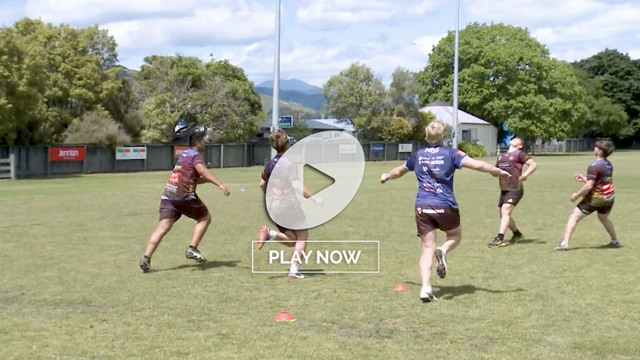

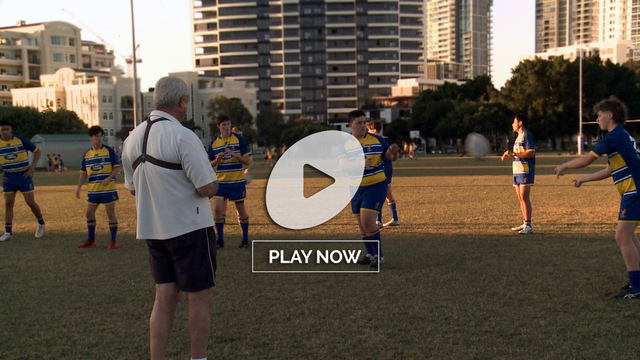

.jpg)
